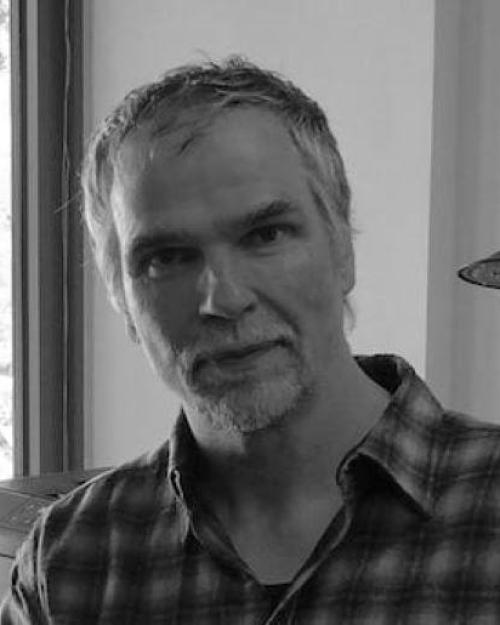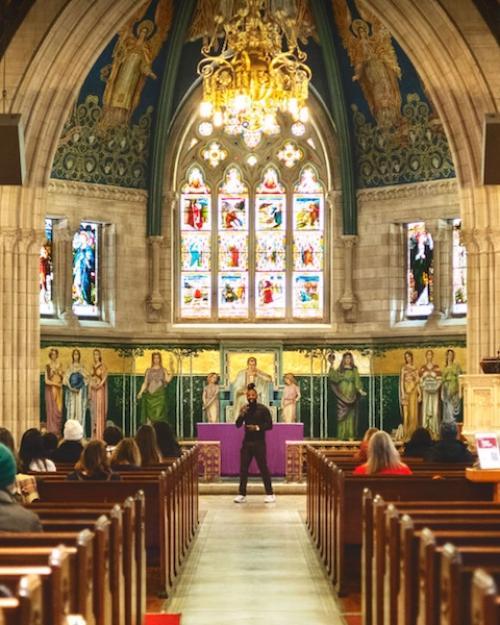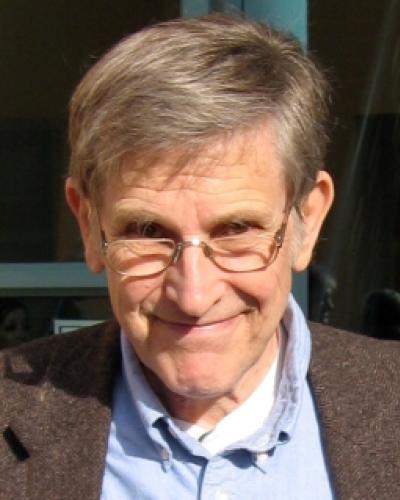In Memoriam
The Sage School of Philosophy announces with great sadness the death on September 3, 2022, of the brilliant and much beloved Sydney S. Shoemaker, Susan Linn Sage Professor of Philosophy Emeritus. September 29 would have been his 91st birthday.
Sydney’s association with the Sage School began in 1954 when he started graduate study at Cornell after a year’s postgraduate work at the University of Edinburgh. That year in Scotland fueled his deep admiration for the work of David Hume and introduced him to the work of Thomas Reid, a major critic of Hume. At Cornell, Sydney was taught and advised by Norman Malcolm, student of Ludwig Wittgenstein, and Max Black, also very influenced by Wittgenstein.
Carl Ginet was another member of the 1954 entering class. He and Sydney began then what was to become a very close friendship of 68 years. First jobs for them both were at Ohio State, where Sydney began in 1957, Carl a year later. Sydney left OSU in 1960 for a 2-year Santayana Fellowship at Harvard (he had just married Molly MacDonald, an undergrad philosophy student at OSU), after which he accepted an invitation to return to Cornell as an assistant professor. He left again in 1967 to join what proved to be the very short-lived philosophy department at Rockefeller University in NYC, returning in 1969 to the Cornell faculty, where he became a full professor in 1970. Carl returned to the Sage School in 1971, and until the late 1990s, he, Sydney, and Norman Kretzmann lunched together weekly to talk philosophy and, especially during Norman’s lifetime, to exchange chitchat about all sorts of other things. The Shoemaker, Kretzmann, and Ginet families regularly shared Thanksgiving and sometimes Christmas dinners at one another’s homes and even occasionally in other locales.
After Norman’s untimely death in 1998, Sydney and Carl continued their weekly lunches, with conversations that were very important to them both. They talked with one another about their work, and Sydney dedicated his last book, Physical Realization, to Carl. Sydney’s brilliance might initially escape the casual observer. He was not quick off the mark nor was he trying to score points. He was slowly, but with enormous care and patience, exploring arguments, developing his own and others’ understanding through meticulous examination of a number of issues central to philosophical projects.
Sydney’s philosophical work was primarily on topics in metaphysics – for example, how the mind is “realized” in physical events, the nature of properties and causation, what constitutes the identity of a person over time – and on related topics in epistemology – for example, the nature of one’s knowledge of one’s own mind, the nature of perceptual representation. His work on all these topics was highly original, penetrating, and, of course, influential. One of his papers, “Time Without Change”, was on a question that does not fit neatly under any of those topics, namely, whether it is conceptually possible for the whole universe to exist for a time during which no change occurs in it. It was widely thought (and probably still is), following Leibniz, that this is not possible, that the passing of time requires change, requires some difference between earlier and later. Sydney’s paper showed how it could be possible: he gave an ingenious, easy to comprehend example of a possible world in which we would have compelling evidence that there had occurred a significant period with no change at all.
Testimonials from some of his former students capture beautifully what Sydney was like as a teacher and mentor.
Jessica Wilson: “Time without Change” was one of the first metaphysics papers I ever read; it blew me away and sealed my fate. When I got into Cornell, I was over the moon thinking that I'd be able to study with the great Shoemaker. He didn't disappoint, of course. What a mind! Brilliant, meticulous, and awfully shy (I had to blather on for the first few minutes of every meeting until he could get into the swing of things), he inexorably zeroed in on the heart of the matter, whatever the topic at hand.
Richard Moran: He was the reason I wanted to go to Cornell for graduate study and he was the most wonderful adviser I could have imagined. Apart from his brilliance and clarity of thought, he was always responsive and encouraging to whatever I was doing. He was the opposite of an adviser who insists that you conform to their particular way of seeing the problems. With him I always felt that precious combination of freedom, guidance and encouragement that anyone needs to flourish in graduate school. With him it simply came naturally, and was part of his utter lack of vanity. By the time I got to Cornell Sydney had already been a legend in that department for many years and had everyone's deep respect and admiration. But he himself was almost diffident in his self-presentation, which made the forcefulness of his spoken thought (in teaching or colloquia or conversation) all the more impressive. It was a memorable experience to *watch* him think, when he had to pause, sometimes in the middle of a lecture. You could see the beauty of his desire to get things right, the effort it took to get past some difficulty, and the movement of the powerful mind behind it all.
Alan Sidelle: While we used to joke about the fact that Sydney’s seminar style … was to write a paper and then read it - what is not a joke is that he would write a paper every week. And of course, they were all eminently worth listening to, illuminated the readings and the issues, and were provocative and often contained the germs of ideas that he would later publish. It was a privilege to be in on ground zero. And, as Kadri Vihvelin humorously noted …, if you bent over to pick up a pen you had dropped, you would likely have missed a crucial step in the argument. …His arguments were often very intricate. … He wasn’t baroque - but he saw and developed difficult connections, and wanted to nail everything down as much as possible.
Hilary Kornblith: I vividly remember one session of a graduate seminar he taught my first term at Cornell. As others have mentioned, Sydney would simply read the very extensive material he had typed out for each seminar meeting. He'd read a chunk of it, and then pause for questions. On [this] occasion …, there was a question right near the end of the class which he really didn't adequately answer. None of us thought much of it; this sort of thing happens. The next week, he began by saying that he hadn't adequately answered a question that came up the time before, but he'd now had a chance to think about it and he had a bit more to say. And he then pulled out about a dozen or so type-written pages, and he read out his answer. It's not just that it was a masterful response to an interesting question. We all realized that this was what it was like to be taken seriously, and that quick off the cuff responses, however impressive at the time, were nothing compared to this. It provided a model for us all of what philosophy could be.
Jeffrey Roland: …what really struck me … was the atmosphere in the room, the people there and the way business was conducted. … every week around [the] table would be not only first and second year grad students still doing coursework but a number of advanced grad students … and faculty, both from Cornell and elsewhere in the area. … The overriding feeling in the room was that we were collectively engaged in a project. We might disagree and probe as philosophers do, but it was never about getting over or up on someone. It was about working the problem at hand cooperatively. That was a mark of the Cornell approach, due in no small part to Sydney …
Rebecca (Becko) Copenhaver: He was on my committee because he was one of the few people who had heard of Reid and had actually read him -- part of his dissertation was on Reid. Having him on my committee with three other incredibly supportive people -- Allen Wood, Carl Ginet, and Zoltan Szabo -- got me through grad school. … Sydney was solidly in my corner at a very difficult, hazardous time. He was also warm and now-and-then playful: … I loved catching a glimpse of him riding his scooter to work. My funniest memory of Sydney is going into his office to discuss something. He was so quiet and slow. Quiet people make me nervous, and when I get nervous I talk louder and faster than I already do. I worked myself up into quite a tizzy and Sydney just looked at me, cocked his head sideways, and shook his head "no". Anyone else and it would have devastated me. But he was always gentle with me.
Eric Hiddleston: He was immensely thoughtful in giving feedback that was so slow and careful that you really had to take a time-out from the world to appreciate and engage with what was happening right in front of you. He was like a philosophical whale in a world populated mostly by seals and dolphins.
Christina Van Dyke: I’m loving seeing everyone’s memories of Sydney Shoemaker. He was the lone non-historian on my committee, and I’ll always appreciate how insightful and kind his comments on my dissertation were. What I remember best about him, though, was his bashful smile and how he modeled just how good quiet, non-flashy philosophy could be. He was Norman Kretzmann’s best friend; when I told Norman I wanted to work on Aquinas’s theory of personal identity, he made a face and said, “The only good thing about personal identity is that Sydney Shoemaker works on it.”
Also, there was a coffee pot in the Common Room at Cornell, and if it was empty when Sydney came in to get some, he would hold the pot up sadly, kind of shake it from side to side just in case there was more in there than it looked, put the pot back, take a half-step towards the coffee makings, rock back on his heels, shake his head, and leave the room with dejected shoulders. With anyone else, that would have been a passive-aggressive way of asking someone else in the room to make it, but with Sydney it was like each time he thought maybe THIS was the time he’d try making the coffee and then decide maybe not.
I like imagining that he and Norman are getting to resume their weekly lunch tradition, which they carried on for over 30 years.
Quayshawn Spencer: I'm at the age now when my college professors are dying, and their death rate is going up each year. … Sydney Shoemaker [was] a giant in philosophy of mind and metaphysics, and a staple of Cornell's department of philosophy for many decades. He was the professor who I first studied philosophy of mind with. I had no idea how big of a deal he was when I studied with him in the spring of my junior year. Coincidentally, that was also the semester when I met Richard Boyd in my first philosophy of science course. Boyd died last year. While Shoemaker and I weren't as close as Boyd and I, I've come to realize that you don't have to be close to a professor in order for that professor to have made a significant impact on your life. Here's what impact Shoemaker made on mine.
I was the only African American student in the course I took with Shoemaker. I was used to being the only Black student in my courses. As a chemistry and philosophy double major, that comes with the territory. There were only a few Black chemistry majors when I attended Cornell, and I was the only Black philosophy major I knew of when I attended. But Cornell professors handled that situation very differently. Some held up high expectations for all of their students and expected me to excel like any other in the course. Some did not.
For example, I remember one chemistry professor whose office hours I attended with questions about subject matter from the course. He took one look at me and said that I shouldn't worry about it. If I attend every class and submit all the work, he'll give me a "C." That's what he thought about my intellect and potential. It was a demoralizing experience.
On the flip side, I remember submitting a writing assignment that Shoemaker didn't think was up to my potential, and he did the exact opposite of that chemistry professor. He expressed disappointment in light of his belief that I had the potential to write a much better paper. He was, in fact, correct, and the next paper I sent him was a much better reflection of my abilities. I ended up doing well in the course, and it was ultimately because he saw and respected my intellect and potential. I always remembered how he treated me. It's an unfortunate truth that I cannot say that I felt respected intellectually by all of my college professors. But I did with Shoemaker. I do my best to treat my students like Shoemaker treated me. I keep my standards high, and I expect every student to meet them, no matter what they look like and where they're from. He will be missed.
For more on Sydney’s life and career, consult the links below. The quintessential Sydney smile in the picture above lit up many lives: students, colleagues, family, and other friends. Sydney was an extraordinary person, the memory of whom we treasure. We grieve with and for his much loved family: wife Molly, son Peter, daughter-in-Law Jill Lagerstrom, and grandson Erik.
See: Leiter Report, Daily Nous, US Day News, and Cornell Chronicle





